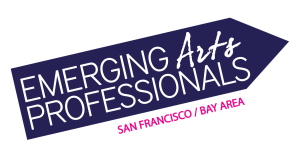2014-15 Cultural Equity Fellows
Selected Readings
Risk & Privilege By Andrew Taylor
Artists of Color Stand Up Against Discrimination in the Field By Diep Tran
Placemaking and the Politics of Belonging and Dis-belonging, By Roberto Bedoya
If you’re lucky enough to earn a living from your art, you’re probably white By Roberto A Ferdman
New York City to Collect Diversity Data on Cultural Organizations
Off Color: Issa Rae (Video Series) (Also see Hari Kondabolu, Kristina Wong & Lalo Alcatraz)
Diversity Makes Us Smarter By Katherine W. Phillips
D’Lo: I’m the hardest thing about my Craft By Jamilah KIng
TCG Diversity and Inclusion Arc Day 1 By Jacqueline E. Lawton
Making Meaningful Connections By Holly Sidford, Alexis Frasz and Marcelle Hinand
Cartoonists who Paint a New Picture of Social Justice By Jamilah King
Rinku Sen and Jeff Chang Discuss His Latest “Who We Be’
2014’s Top 50 Most Powerful and Influential People in the Nonprofit Arts (USA) By Barry Hessenius
2014 Power 100/Art Review
Students See Many Slights as Racial ‘Microaggressions’
Cultural Equity Cohort / 2014-2015 – Projects
A Workshop
Crossing Into Race and Privilege in the Arts
Lead by Lauren Benetua, Jay Marie Hill, Dorothy Santos, Manish Vaidya and Angela Anderson Guerrero,
A conversation about diversity, identity and the ways that history, culture, public policy and institutional practices interact to impact the way we address race and privilege in our sector. The session will invite us all to talk very explicitly about what #BlackLivesMatter looks like in practice via a multi-generational and multi-racial diaspora in the Bay Area. The goal of the session is to walk out with tightly bound commitments and new allegiances that lives far beyond the room and space.
This workshop will take place at EMERGENCE 2015 – on May 30th, 2015 – Yerba Buena Center for the Arts


